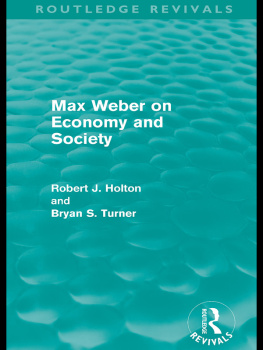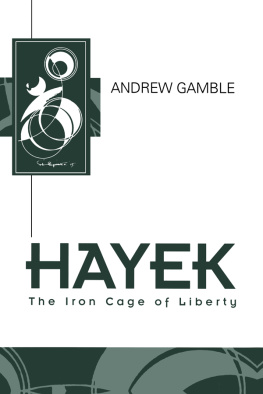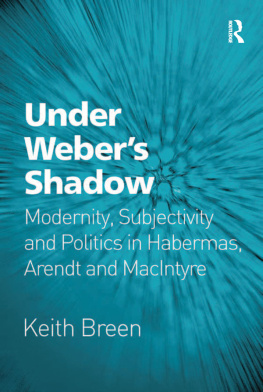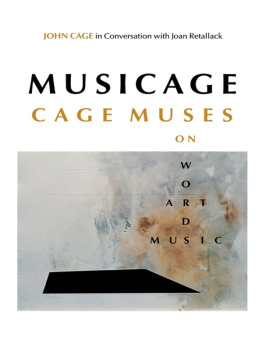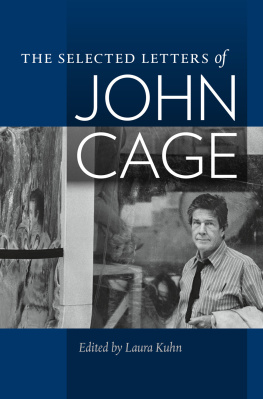The Iron Cage Revisited
At the start of the twentieth century, when Germany, among other nations, was undergoing industrialization, Max Weber famously characterized modern life in words that have often been translated as iron cage. During the industrial era, that image caught on and was often used by scholars to express concerns about the extent to which the actual character of modern life contradicted its emancipatory promise. But we are living in a different time now, when the conditions under which we live seem to be quite different from the ones that pertained in Webers day. It is a time when, in some respects at least, life seems to be freer and more conducive to experimentation, which has led some people to conclude that our societies have escaped from Webers cage. But is that really true? This book challenges that notion, considering the consequences for our way of life of the triumph of neoliberalism as a political force. Offering discussions of the obsessive materialism of our current way of life, the fascination with new technology, the instrumentalization of human beings, and the widespread fatalism, the author clarifies the meaning of Webers thinking on the probable fate of modern societies and explores its relevance to current conditions. As such, The Iron Cage Revisited will appeal to scholars of sociology, politics, and social theory.
R. Bruce Douglass is Associate Professor and former Chair of the Department of Government at Georgetown University, USA, where he teaches political and social theory. He has also served as Dean of the Faculty of Georgetown College. He has taught at the University of Virginia as a visiting professor and has been a visiting fellow at the Institute for Advanced Studies in the Humanities at the University of Edinburgh in Scotland. He is the co-editor of Liberalism and the Good, Catholicism and Liberalism and A Nation under God?
Classical and Contemporary Social Theory
Classical and Contemporary Social Theory publishes rigorous scholarly work that re-discovers the relevance of social theory for contemporary times, demonstrating the enduring importance of theory for modern social issues. The series covers social theory in a broad sense, inviting contributions on both classical and modern theory, thus encompassing sociology, without being confined to a single discipline. As such, work from across the social sciences is welcome, provided that volumes address the social context of particular issues, subjects, or figures and offer new understandings of social reality and the contribution of a theorist or school to our understanding of it.
The series considers significant new appraisals of established thinkers or schools, comparative works or contributions that discuss a particular social issue or phenomenon in relation to the work of specific theorists or theoretical approaches. Contributions are welcome that assess broad strands of thought within certain schools or across the work of a number of thinkers, but always with an eye toward contributing to contemporary understandings of social issues and contexts.
Series Editor
Stjepan G. Mestrovic, Texas A&M University, USA
Titles in this series
The New Narcissus in the Age of Reality Television
Megan Collins
Depressive Love
A Social Pathology
Emma Engdahl
We Count, We Matter
Voice, Choice and the Death of Distance
Christopher Steed
For more information about this series, please visit: https://www.routledge.com/sociology/series/ASHSER1383
The Iron Cage Revisited
Max Weber in the Neoliberal Era
R. Bruce Douglass

First published 2018
by Routledge
2 Park Square, Milton Park, Abingdon, Oxon OX14 4RN
and by Routledge
711 Third Avenue, New York, NY 10017
Routledge is an imprint of the Taylor & Francis Group, an informa business
2018 R. Bruce Douglass
The right of R. Bruce Douglass to be identified as author of this work has been asserted by him in accordance with sections 77 and 78 of the Copyright, Designs and Patents Act 1988.
All rights reserved. No part of this book may be reprinted or reproduced or utilised in any form or by any electronic, mechanical, or other means, now known or hereafter invented, including photocopying and recording, or in any information storage or retrieval system, without permission in writing from the publishers.
Trademark notice: Product or corporate names may be trademarks or registered trademarks, and are used only for identification and explanation without intent to infringe.
British Library Cataloguing in Publication Data
A catalogue record for this book is available from the British Library
Library of Congress Cataloging in Publication Data
Names: Douglass, R. Bruce, author.
Title: The iron cage revisited : Max Weber in the neoliberal era / [edited by ] R. Bruce Douglass.
Description: 1 Edition. | New York : Routledge, 2018. | Series: Classical and contemporary social theory | Includes bibliographical references and index.
Identifiers: LCCN 2017051582| ISBN 9781138285446 (hbk) | ISBN 9781315268965 (ebk)
Subjects: LCSH: Weber, Max, 1864-1920--Political and social views. | Sociology--Philosophy.
Classification: LCC H59.W4 D68 2018 | DDC 301--dc23
LC record available at https://lccn.loc.gov/2017051582
ISBN: 978-1-138-28544-6 (hbk)
ISBN: 978-1-315-26896-5 (ebk)
For Kim and David
The Puritan wanted to work in a calling; we are forced to do so. For when asceticism was carried out of monastic cells into everyday life, and began to dominate worldly morality, it did its part in building the tremendous cosmos of the modern economic order. This order is now bound to the technical and economic conditions of machine production which to-day determine the lives of all the individuals who are born into this mechanism, not only those directly concerned with economic acquisition, with irresistible force. Perhaps it will so determine them until the last ton of fossilized coal is burnt. In Baxters view the care for external goods should only lie on the shoulders of the saint like a light cloak, which can be thrown aside at any moment. But fate decreed that the cloak should become an iron cage.
Max Weber
Bruce Douglass has written a readable book in the style of a professor engaging students in a vibrant discussion. Yet the substance of this book is deep, rigorous, and important for sociological theory. For too long, Max Webers work has been misaligned with the instrumental reason tradition of Talcott Parsons. After Parsons had been debunked by C. Wright Mills and many others, Weber (along with Durkheim) was thrown out with the bathwater of Parsons. More recently, Weber is dismissed as a dead white male whose thought is outdated in the era of identity politics and theory. Against this contemporary tide and background of the routinized but now dead charisma of Parsons, Douglass demonstrates that Webers concept of the Iron Cage holds contemporary relevance. He achieves this goal through an exegesis of what Weber meant by this term more than a century ago, and through a comparison and contrast with our modern era, what it means for us today.
In a word, living in the Iron Cage of modernity means living with a feeling of being trapped. C. Wright Mills captured Webers intent in his book, White Collar




